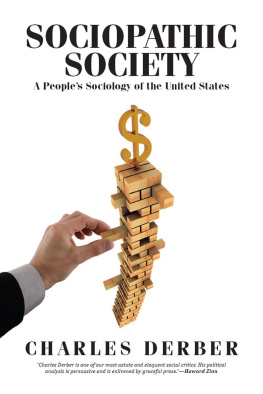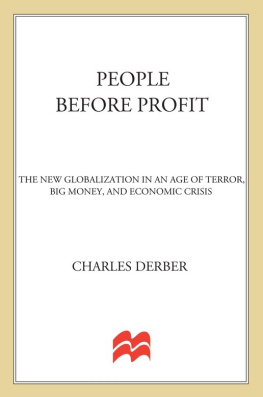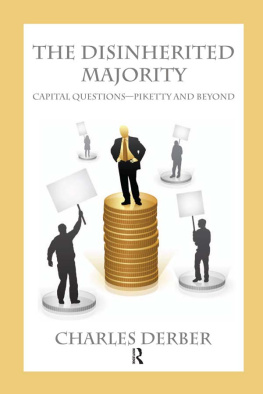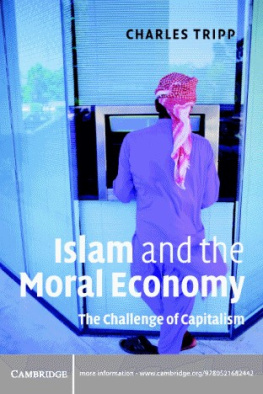CAPITALISM: SHOULD YOU BUY IT?
CAPITALISM: SHOULD YOU BUY IT?
An Invitation to Political Economy
CHARLES DERBER
AND
YALE R. MAGRASS
First published 2014 by Paradigm Publishers
Published 2016 by Routledge
2 Park Square, Milton Park, Abingdon, Oxon OX14 4RN
711 Third Avenue, New York, NY 10017, USA
Routledge is an imprint of the Taylor & Francis Group, an informa business
Copyright 2014, Taylor & Francis.
All rights reserved. No part of this book may be reprinted or reproduced or utilised in any form or by any electronic, mechanical, or other means, now known or hereafter invented, including photocopying and recording, or in any information storage or retrieval system, without permission in writing from the publishers.
Notice:
Product or corporate names may be trademarks or registered trademarks, and are used only for identification and explanation without intent to infringe.
Library of Congress Cataloging-in-Publication Data
Derber, Charles.
Capitalism : should you buy it? an invitation to political economy / Charles Derber and Yale Magrass.
pages cm
Includes bibliographical references and index.
ISBN 978-1-61205-689-0 (pbk. : alk. paper)
ISBN 978-1-31563-569-9 (eBook)
1. Capitalism. 2. Economics. I. Magrass, Yale R. II. Title.
HB501.D428 2013
330.12'2--dc23
2013031115
ISBN 13: 978-1-61205-689-0 (pbk)
ISBN 13: 978-1-61205-569-5 (hbk)
Contents
In , we introduce and define political economy and discuss why we feel it is so important. Great thinkers such as Adam Smith, Max Weber, and Karl Marx introduced political economy to understand the rise of capitalism, which led to one of the greatest transformations in history. Because of capitalism, life has arguably changed in the past two hundred years more than in all of the rest of human history. The early political economists created the way of thinking that would allow modern scholars and citizens to understand this revolutionary system and deal with its enormous implications, including whether it must be embraced, reformed, or overthrown.
But since the early 1900s, political economy, as a discipline, has been subjected to great intellectual and political struggles, eroding its centrality and vitality. Power elites within capitalism as well as pressures within academic social sciences both contributed to this decline. The erosion of political economy deprives intellectuals and citizens today of the main tradition for understanding the modern capitalist world, just in its period of greatest crisis.
In our view, there is hardly a more important intellectual agenda than renewing an understanding of political economy, for without it, citizens lose the tools for coping with the great challenges humanity faces today.
Our aim in is threefold:
1. to define political economy as a framework for thinking, distinguish it from economics, and explain why we view it as crucial
2. to examine the forces that have weakened the appeal of political economy and its approach, using brief case studies from the fields of economics and other social sciences
3. to set forth our own view of the sociological imagination as a tradition for renewing political economy not only in sociology but in all social sciences and in the politics of modern societies
Why We Need Political Economy
Money makes the world go around,
Of that we can be sure.
Before there was economics, there was political economy. Today, there are two separate disciplines: economics and political science. In most universities, they are housed in different academic departments. The implication is that they represent two distinct realms and operate independently of each other.
In our view, the separation of economics from political science has crippled both fields and represents an assault on political economy itself. It is a key part of the story of what political economy is, why it is important, and how it can thrive in the modern world.
Economics is a crucially important field, but only as an integral part of the broader enterprise that we call political economy (PE). Even before economists segregated themselves from political scientists and sociologists, thereby pulling away from political economy, economics became known as the dismal science, a phrase coined by historian Thomas Carlyle in the mid-nineteenth century. In its current form, economics is even more dismalwhich has put its usefulness to society in some jeopardy.
By separating from politics and other social sciences, economics has become detached from the real world. It has become a world of equations on blackboards, beautiful but floating in a heavenly sphere of its own creation. Our economics students, who learn equations and abstract market theories, tell us they learn from their economics classes little about what is going on in the real world, including the real economy. Perhaps the greatest economist of the twentieth century, John Maynard Keynes, said much the same thing and would be sympathetic to their critique: Too large a proportion of recent mathematical economics are mere concoctions, as imprecise as the
Economics, as it evolved in the twentieth century and became more focused on form than substance, claimed to be an objective, value-free science. In order to hold the mantle of science, it tried to reduce all of economics to a series of equations and formulas. For the most part, it imitated an antiquated model of physics, before relativity and quantum mechanics became the dominant paradigms. As Larry Summers, former treasury secretary and Harvard president, put it, calling for the public to have faith in economists expertise, Start with the idea that you cant repeal the laws of economics. Even if they are inconvenient,
In our view, embracing the discipline of political economy, by rejecting the separation of economics from politics and society, that is, from the real world, rescues us from the pathologies of an artificially segregated economics, that is, from farce, false science, and detachment from the world. Understanding political economy offers the possibility of understanding the real economy. And it can contribute something useful to solving the deep socioeconomic and environmental crises now engulfing the United States and much of the world.
The economy does what it does because of the decisions people make, usually people withor aspiring topolitical power. It can only be understood if we look at who has power. Indeed, most economic policy is a result of class struggle, the balance of forces between people with power and those whom they rule or who are trying to challenge them. Economics became a popular term when powerful people in corporations, government, and universities wanted to create the impression that the economy is something that follows laws not subject to politics, laws that rest in nature, almost like the laws of physics. The great political economist, John Kenneth Galbraith, argued his own economics profession was making itself irrelevant with this approach:
The decisive weakness in neoclassical and neo-Keynesian economics is not the error in the assumptions by which it elides the problem of power. The capacity for erroneous belief is very great, especially where it coincides with convenience. Rather, in eliding powerin making economics a nonpolitical subjectneoclassical theory destroys its relation to the real world. In that world, power is decisive in what happens. And the problems of that world are increasing both in number and in the depth of their social affliction. In consequence, neoclassical and neo-Keynesian economics is relegating its players to the social sidelines where they either call no plays or use the wrong ones.







